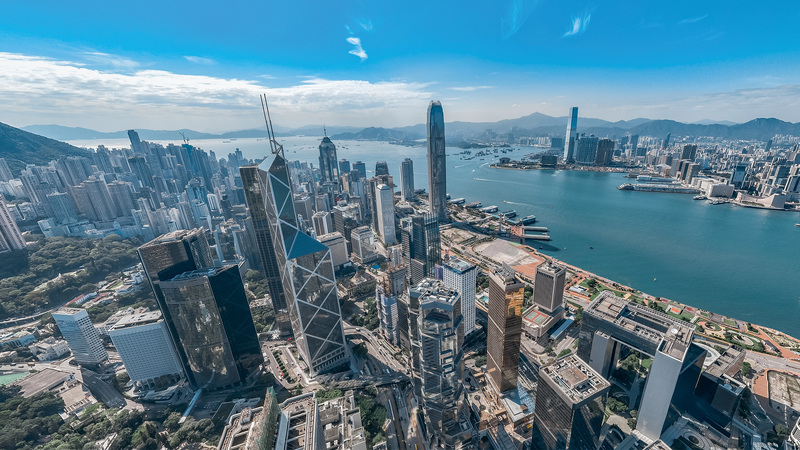You are viewing your 1 free article this month. Login to read more articles.
IPA chief Charkin faces China battle
With the international publishing community currently concerned about the disappearance of five Hong Kong publishers who were planning to print a book critical of Chinese president Xi Jinping, it’s an interesting moment to interview serving International Publishers Association (IPA) president Richard Charkin.
The context is important. Publishers Association of China (PAC) was voted into membership of the IPA at the organisation’s general assembly at the Frankfurt Book Fair last autumn, amid controversy; the German Publishers & Booksellers Association, the Börsenverein des Deutschen Buchhandels, objected fiercely on the grounds that the PAC would not be able to participate in the IPA’s commitment to freedom to publish because its statutes require it to execute the will of China’s Communist Party and it operates under direct state supervision.
Given the harassment of authors and publishers in China, to include the PAC in round-table discussions about persecuted authors and publishers would be “bordering on the grotesque”, Börsenverein president Heinrich Riethmüller and m.d. Alexander Skipis wrote in a letter to IPA delegates ahead of the FBF vote.
In the event, China was admitted, alongside Bangladesh, Greece, Jordan and Peru, while the IPA also voted to give Full Member status to Saudi Arabia, Tunisia and Slovenia. The Börsenverein remains deeply concerned; it has told the IPA that it believes the admittance of the PAC, and the upgraded membership for the Saudi publishers, represent “a breach of IPA statutes” and that “effective measures” will need to be implemented to uphold freedom to publish “in a meaningful and credible way” if the body is to continue as an IPA member beyond 2016. Other country members, including Norway, Sweden, Finland, Iceland, France and Switzerland, are understood to share some of Germany’s concerns.
It’s a challenge for Charkin, who is now halfway through his two-year presidency of the IPA and settled with a new team comprising, among others, secretary general José Borghino and Ben Steward as director of communications and the freedom to publish programme.
But the Bloomsbury executive director, who took on the unpaid role “because they [the IPA] are friends and they asked me to do it, and when friends ask you, you try to help”, remains sanguine. While respecting the Börsenverein’s view as an “utterly valid position”, he says he believes “pushing people out into the desert because of their government’s behaviour is not in my mind a sensible thing.”
“Remember that we represent publishers, not governments, and I can safely say, I think, that no publisher wishes to be censored or to disappear in any way. And that applies to Chinese publishers as much as any other publishers,” he points out. “I appreciate what [the Börsenverein] are saying. The counter-argument is that engagement is better than disengagement if you want to make progress, and I believe that to be the case. We have had tremendous support from those who agree—and more agree than don’t.”
The IPA was quick to raise concerns over the missing publishers in Hong Kong, and indeed has been particularly active on freedom to publish issues in the last couple of months, Charkin notes, slamming the Vatican over its attempt to jail two critical journalists and attacking repressive measures in Turkey (see left).
Furthermore, when a publisher association is a member of the IPA, it gives the international body more clout in protesting on their behalf, he argues. And it has to be remembered that a substantial part of the IPA’s work is under the radar, such as approaches to government and officials that, in order to be effective, cannot be openly revealed.
Membership of the IPA can also help progress, Charkin firmly believes. As an example, it was also controversial when the Emirates Publishers Association joined the IPA in 2009, because of the United Arab Emirates’ human rights record. However membership has boosted change, with the EPA hosting a panel titled “Freedom of expression = freedom to publish” at the Third Arab Publishers Conference last year.
Sheikha Bodour Al Qasimi, daughter of the ruler of Sharjah and the EPA’s founder and patron, told The Bookseller that the panel “openly discussed the limitations on these key freedoms in the UAE and the wider Arab world, and affirmed the positive impact that freedom to publish has on fostering development and democracy, while rejecting the premise that freedom to publish undermines national security”.
She described this as “a fundamental shift in regional discourse” achieved by harnessing, via the IPA, “increased interaction with fellow publishers and publishing associations from around the world in devising a vision for the future of the industry that is influenced by international best practices”.
The UAE has also made 2016 the Year of Reading, following work from the EPA to raise the issue of cultivating a reading culture.
Though currently dominating headlines, freedom to publish is only one half of the IPA’s remit, the other being the protection of copyright, with the IPA the designated agency for lobbying at the World Intellectual Property Office (WIPO). Charkin believes copyright is under “severe threat” worldwide.
He says: “The emerging economies don’t want to pay for their educational books—and who can blame them?—but doing that [creating copyright exceptions for education] damages their own industry as well as the world industry. There is the whole ‘for free’ movement, there is political misunderstanding of a high order about what copyright is for and why [it exists], and what publishers do. [Politicians] don’t understand and of course they don’t care, because they only care about their next election.
“So there are those external challenges, and there are also the internal challenges: how do we ensure the library associations of the world, [academic publishing body] STM, the newspapers, even the authors’ organisations, are all facing the same way on copyright?
“Actually we are absolutely as one with the authors, except that after about 10 minutes there is a fight about who gets the biggest slice of the cake—and you can understand it. But the bigger issue, the existential issue, is: is there any money in the
first place?”
Does Charkin think the industry is winning the copyright battle? “In Europe I think the individual publishing associations and the Federation of European Publishers have done a really good job, but they’re up against it, because the ideologues in Brussels don’t understand. I think we are being heard, but are we winning? Only time will tell.
“Worldwide, are we winning? It’s hard to say, because the technology companies have an utterly different view—except when it comes to their own algorithms—and they are strong lobbyists, both at WIPO and with individual governments.”
•On 9th-12th April 2016, the 31st International Publishers Congress will be held in London. Speakers will include Francis Gurry, director general of the World Intellectual Property Organisation, Hachette Livre c.e.o. Arnaud Nourry and authors Philip Pullman and Alaa al-Aswany.


















